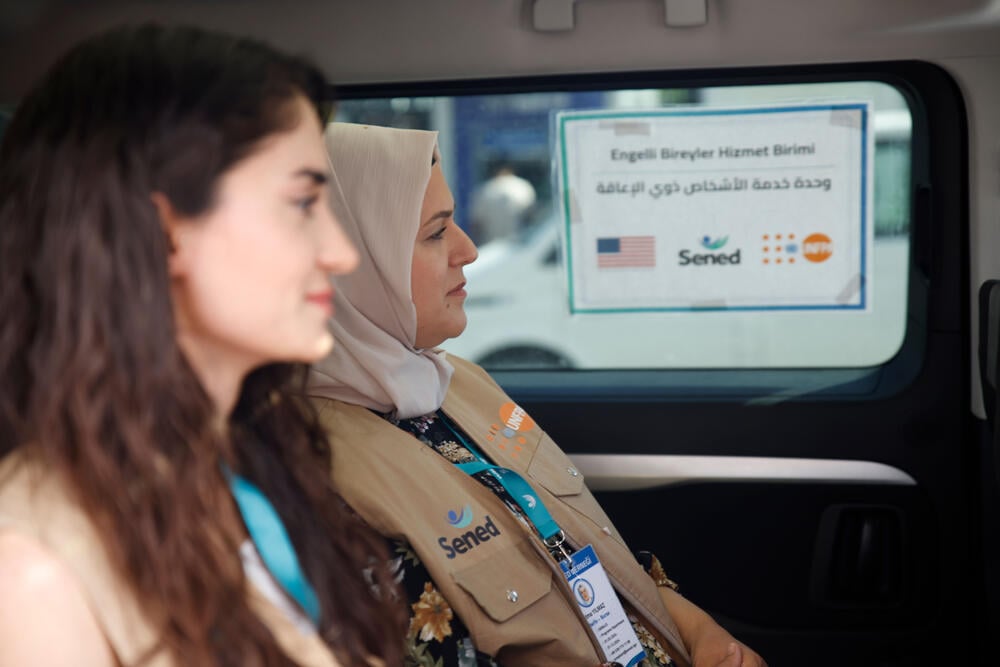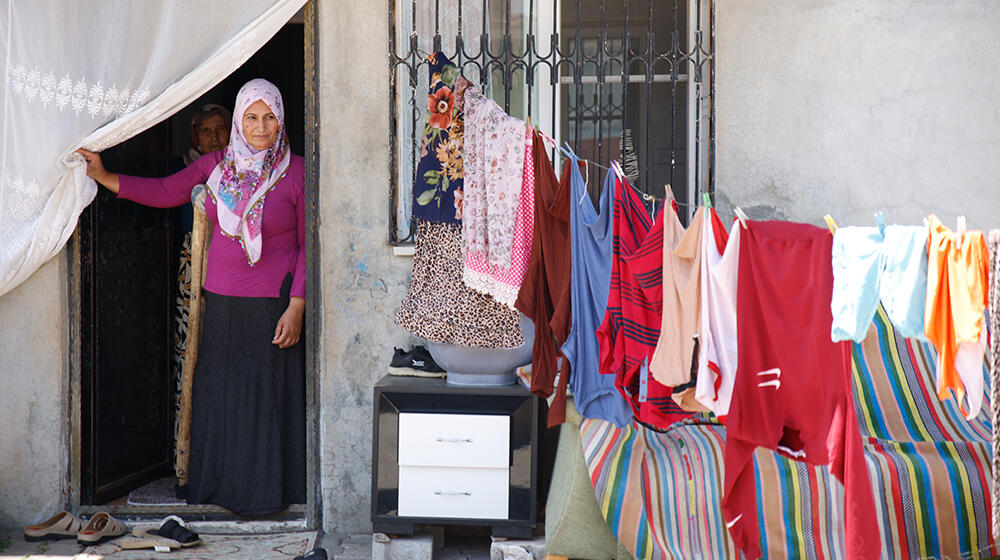December 3rd, the International Day of Persons with Disabilities is an important day to raise awareness about persons with disabilities, draw attention to the barriers they face in accessing information and services, and advocate for solutions. Almost one in six people worldwide experience significant disability. However, the rights and choices of people with disabilities are often overlooked and are underrepresented in decision-making mechanisms. Humanitarian crises exacerbate this issue. Women and girls with disabilities represent one of the most vulnerable groups among persons with disabilities. Women and girls with disabilities face higher rates of gender-based violence and have difficulty in accessing information and services in the areas of health and protection. The United Nations Population Fund (UNFPA), together with donors and partners, supports women and girls with disabilities and their caregivers in the areas of health and social protection.
Gaziantep, Türkiye - Persons with disabilities comprise approximately 15 percent of the population in Türkiye. Almost one in five refugees living in Türkiye is a person with disability (UNHCR, 2022). Following the devastating earthquakes that occurred on February 6, 2023, thousands of people accumulated various disabilities. Furthermore, the interrupted service infrastructure during and after the earthquakes may hinder the access of groups with special needs to information and services. United Nations Population Fund, UNFPA, with the partnership of SENED Organization and financial support of the US Government, is on the field to provide information and services to persons with disabilities, including refugees, and their caregivers in the areas of women’s and reproductive health and social protection, including violence against women, through static and mobile service units consisting of nurses, a social worker, outreach personnel and interpreters in Kahramanmaraş and Gaziantep (specifically in Nurdağı and Islahiye districts), which were among the provinces affected the most by the earthquake. On December 3, the International Day of Persons with Disabilities, let’s listen to the stories from the field.
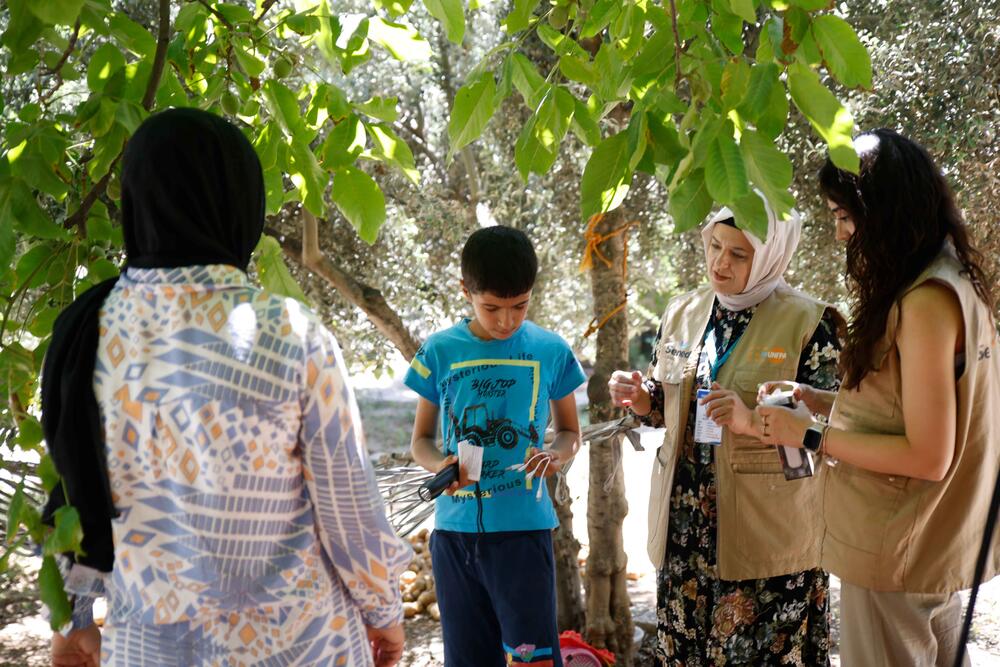
Hilal’s story
After the earthquake, the lives of persons with disabilities and their caregivers living in the region became even more difficult. Hilal lives in the Nurdağı district of Gaziantep with her 11-year-old son Sinan, who has autism. Welcoming us in the garden full of fruit trees, which is also her son’s playground, Hilal tells us about the challanges they experienced after the earthquake; “Sinan is a child who has difficulty in getting out of his routine. The earthquake affected us very badly, there was a lot of destruction in our neighborhood. My son did not want to accept the excavators around, he did not want to live in the tent, so we stayed in the car for a week.”
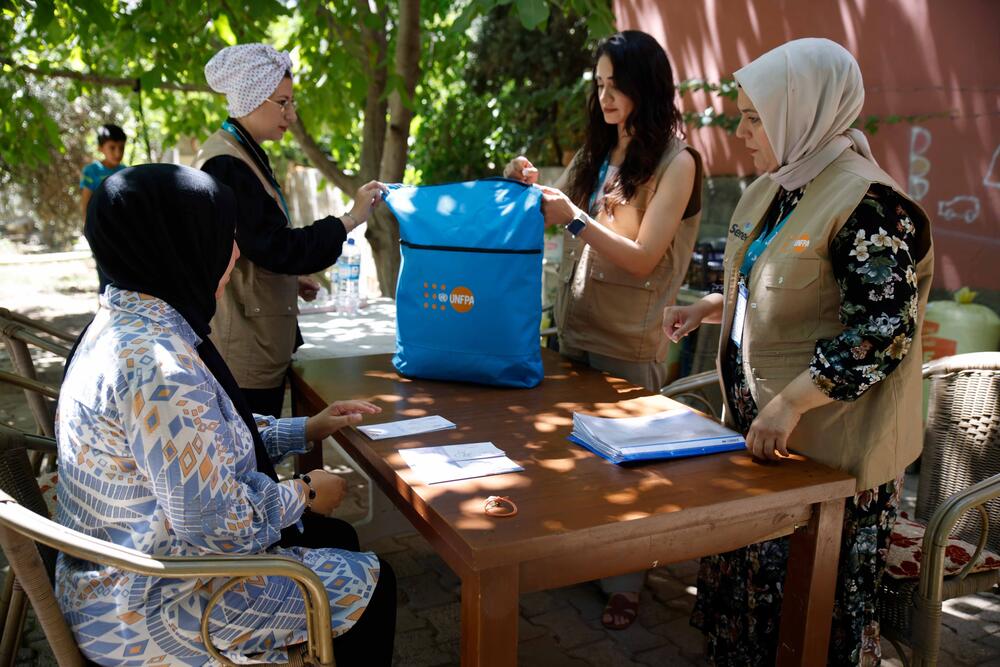
Hilal (36), who is separated from her husband 3 years after the marriage, has been caring for her child on her own for a long time without alimony support. She put her son's needs before her own in order to take good care of him. She attended an awareness session organized by the service unit operated in partnership of UNFPA and SENED in her neighborhood and gained important information about the care needs of her son Sinan, who has special needs, as well as her own health and hygiene. With the visit of UNFPA supported mobile teams, she learned new things about women's health and protection, obtained information about the services provided, and received a female dignity kit. Stating that her awareness of both her son's care and her own needs increased thanks to this, Hilal says with a smile, attending the sessions and the visits of the teams also contributed to her socialization, she felt that she was not alone, and that she became stronger.
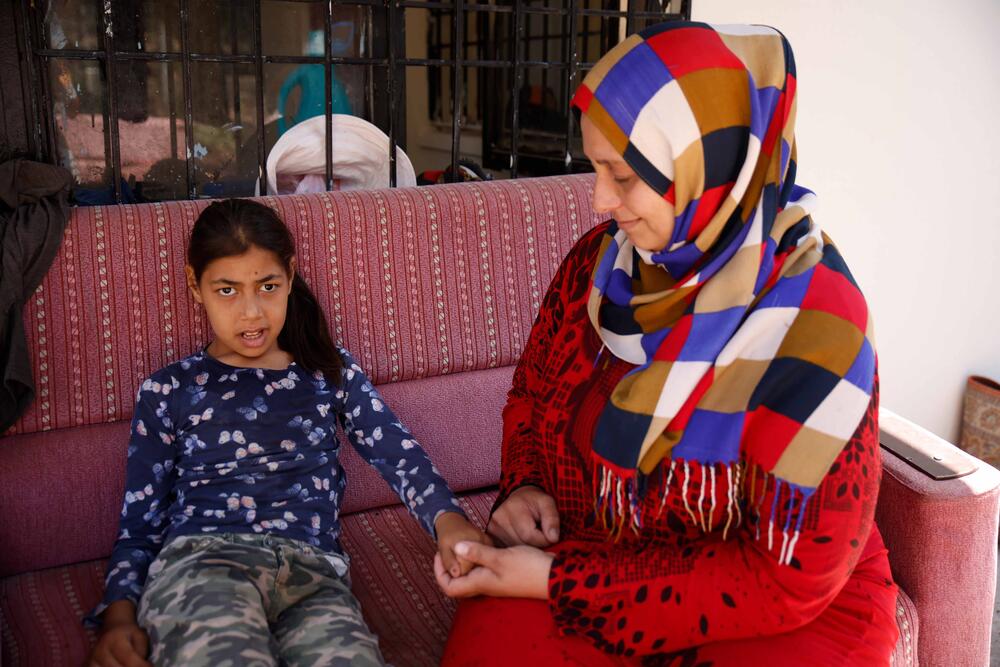
Seniye’s story
Following the Syrian crisis, Seniye (37) and her family, who migrated to Türkiye in 2013, live in Islahiye, Gaziantep. When their house was severely damaged in the earthquake, they had to move to a small shanty house with their 6 children. One of their daughters lives with disability and requires constant and special care.
Saying that her husband and family earn a living by collecting plastic, Seniye says that after the earthquake, she had difficulty meeting the needs of her own and her children; “I have a child with disability, and while trying to meet her needs, I could not think about my own needs or even my health,” she says. From hygiene and women's health to family planning and how to take care of her daughter, she learned essential information during the visits of our mobile teams. She says that she learned about the services provided and learned how she could get these services, and adds that with the support of the female dignity kit, she and her daughters’ basic hygiene needs were met. “We have a very difficult life, but at least I know I am not alone anymore,” she says.
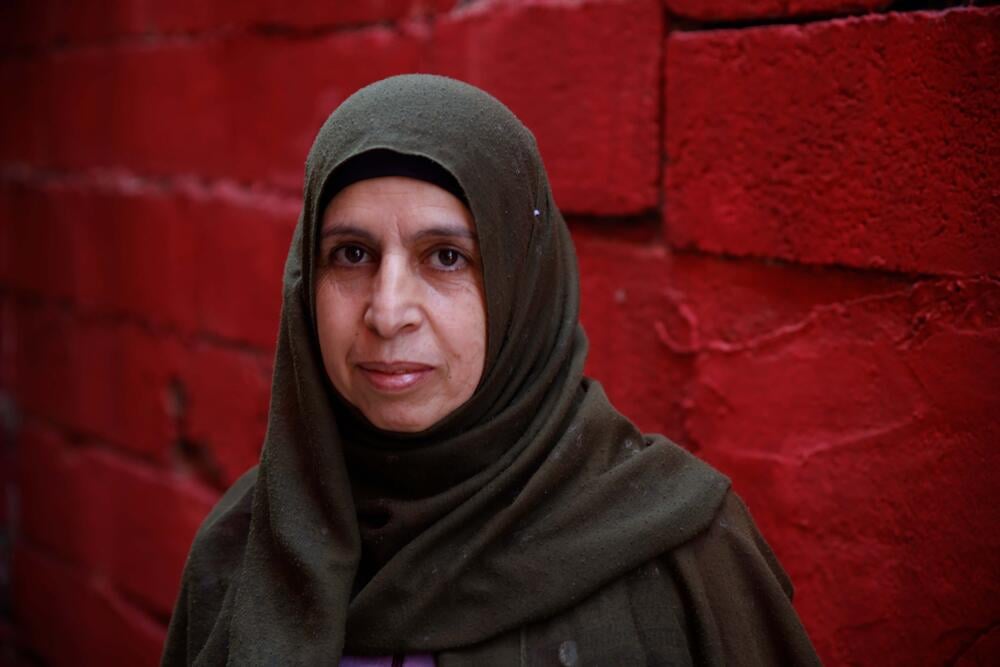
Leyla’s Story
During the Syrian civil war, a bomb explosion caused disabilities for Leyla and her husband. Following this traumatic event, Leyla and her family had to leave their home, eventually settling in Türkiye with her husband and four children. Determined to rebuild their lives in Türkiye, Leyla and her husband underwent numerous surgeries to regain their health. Just as they were establishing stability and adapting to their new life, their home was destroyed by the devastating February 6 earthquakes, once again turning their lives upside down.
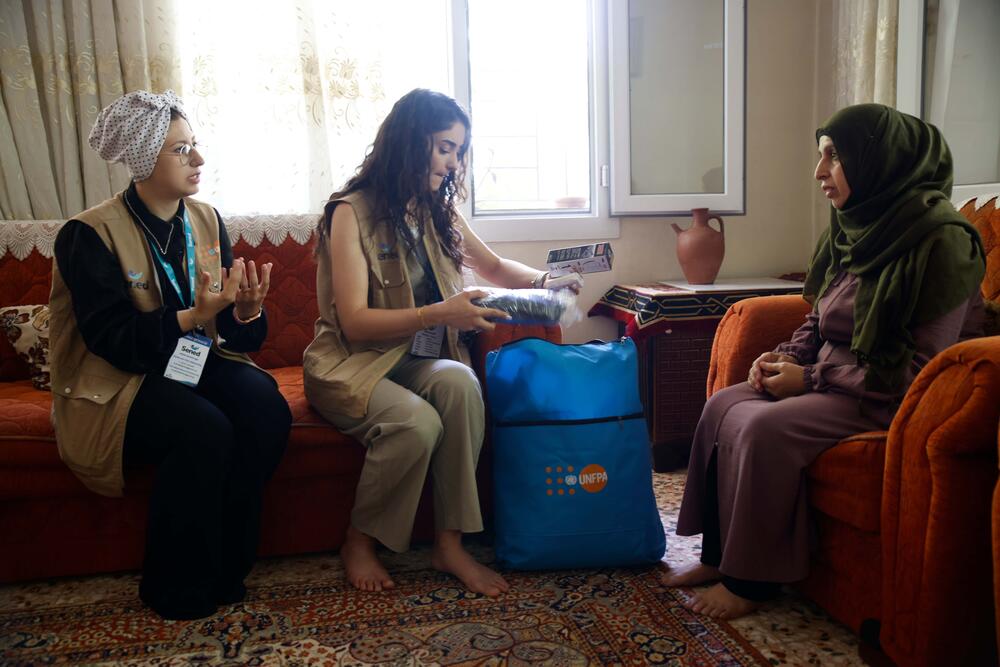
Leyla, like many women with disabilities in the earthquake region, faces barriers in accessing information and services related to women’s and reproductive health, as well as prevention on violence against women, in the aftermath of the disaster. While walking through the market, Leyla met UNFPA supported team by chance and reached out for support. Through a visit by the mobile team, she gained essential information about women’s health services available to her, including family planning, and received a female dignity kit. Leyla also received guidance and referrals from our mobile teams regarding the care and treatment of her injuries. “I feel like my life is starting to return to normal, and I feel stronger,” says Leyla.
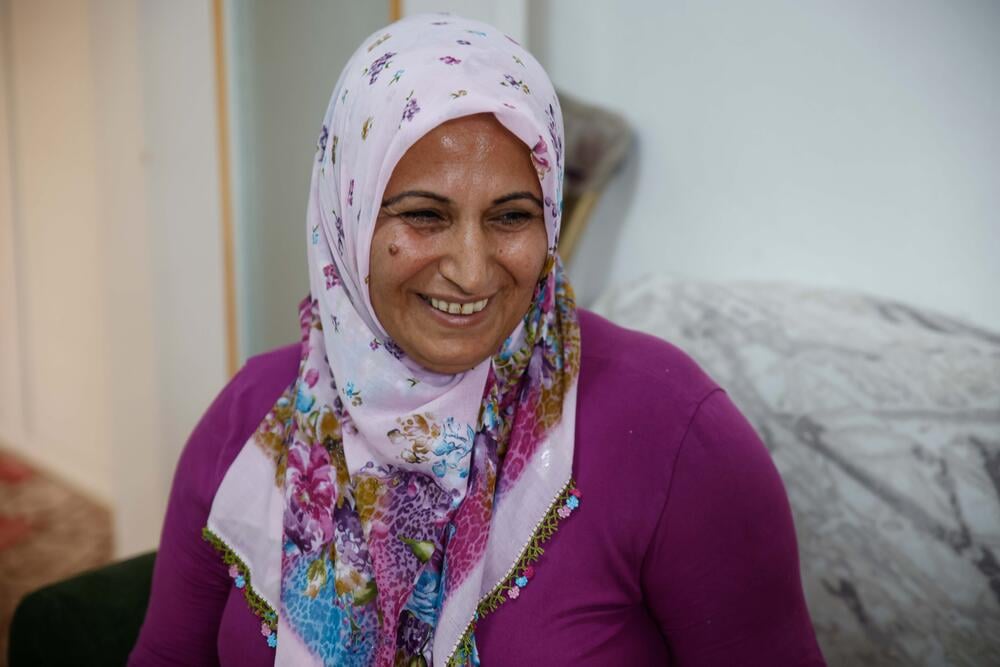
Saime’s Story
Saime, who uses crutches for many years after contracting polio as a child, found her life becoming even more challenging after the earthquakes. Saime explains that she and her husband, who is also a person with disability, struggle to make a living their limited income and face significant difficulties in accessing the services they need.
Saime shares that the visit from the UNFPA-supported mobile teams was incredibly helpful for her. She learned many things she didn’t know before about women’s health and was able to meet several essential hygiene needs with the support of the female dignity kit she received. Saime, who is still undergoing treatment for a kidney condition, also received counseling and referral support for her health issues. Expressing that she no longer feels alone, Saime says, “Every day is difficult because of my pain, I even struggle to go out and get what I need. They visit me, provide information, give me the hygiene supplies I need, and we chat a little. It makes me feel so much better.”
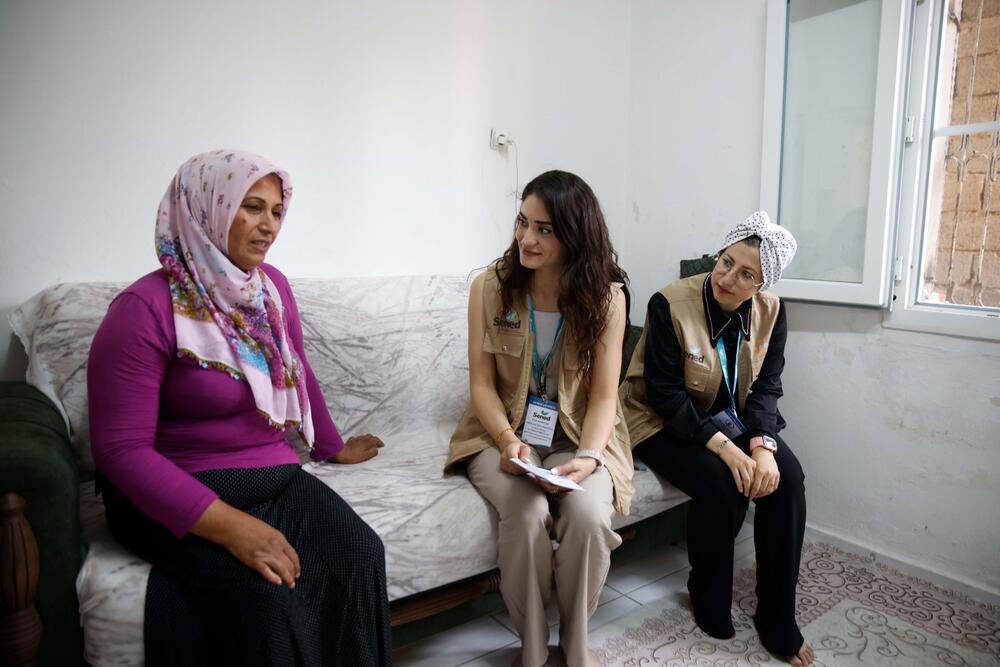
UNFPA Türkiye, with the financial support of the U.S. Government and in collaboration with SENED, is on the ground in Gaziantep and Kahramanmaraş to address the reproductive health and social protection needs of women and girls with disabilities, as well as their caregivers. On December 3rd, the International Day of Persons with Disabilities, and every day, UNFPA continues advocating for the needs of persons with disabilities, and working to increase their access to information and services.
